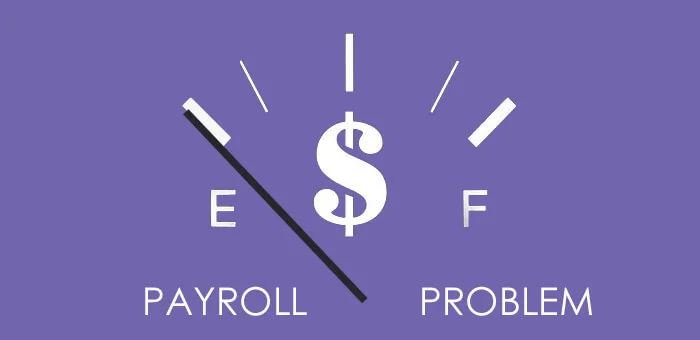How to overcome a business line of credit rejection
You pinned your hopes for your small-but-growing company on getting a business line of credit. Now you were denied.
When you’re trying to grow your business, there’s almost nothing as frustrating as being turned down for a loan you really need — and you know you could pay back. If the bank would just give you a chance.
But don’t lose hope, because banks aren’t your last resort.
In this post we’re going to talk about:
- Why you were denied a business line of credit (and how to improve your eligibility)
- The pros and cons of alternative business financing options
- Ways to make your business more eligible for a business line of credit in the future
My business is doing so well. Why was I denied a business line of credit?
When a bank denies a business line of credit to a profitable business, it’s usually because the business doesn’t meet one or more of the following criteria:
The past two years have been rough. Because banks are highly risk-averse, they attach far more weight to past performance than they do to where your business is right now.
You’re a type of business that’s considered high-risk. Banks are extremely risk-averse, and they consider certain types of business to be more volatile than others. Some examples of high-risk businesses are sole proprietorships, cash-intensive businesses (like restaurants and other service-based businesses), certain online businesses and businesses that are seasonal in nature.
Poor credit history. Credit history is very important to lending banks, so much so that they are likely to deny a line of credit to businesses with a poor credit history — even when their present credit rating is good.
Is there any way to improve my chances of qualifying for a business line of credit?
Yes, there are.
STEP ONE
The first step to boost your chance of being eligible is to have an accountant review your income statements to ensure they’re well drawn up and ready to present to a lender.
💡 Pro tip: Be fully honest and up-front.
If there’s any financial data that’s less than impressive, and might hurt your chances, don’t hide it — but also show how you resolved (or plan to resolve) those issues. It’s far better to be transparent now than to have problems be discovered later on (and they will be).
STEP TWO
Next, make sure you have any and all non-financial documents. Having any and all licenses, permits, legal contracts, and insurance policy documents in order shows that your business is legitimate and fully compliant.
STEP THREE
Finally, gather as many “nice-to-have” documents as you can that make you look impressive, and make the bank more likely to approve your line of credit request. This includes collateral, a summary of your business history, personal guarantees, and a well-drafted business plan.
Find out more about what you can do to qualify for a business line of credit =>
What if I’m still not eligible? What are my options?
If despite your best efforts you’re still not eligible for a business loan, don’t lose heart. There are a number of alternative financing options available to you.
Alternative financing #1
One option is to put growth on hold.
Restraining growth can be a useful short-term solution to a temporary slump, since the big advantage is that you don’t need external assistance to do it. You simply stop investing in expanding your business — equipment, manufacturing, purchasing, marketing etc; instead, you focus all your resources inward and on getting out of the red.
The problem here is that when you put growth on hold and turn down jobs, after a while your potential clients and customers will drop you and go straight to your competitors.
Alternative financing #2
Friends and family can be another resource.
Often, these are the people who believe in your business the most — and are most invested in its success. If they can, they might be willing to extend a loan when your bank won’t give you a business line of credit. Just be aware that any default on payments could sour the relationship. So set careful boundaries and handle with care.
Alternative financing #3
If you have a lot of money in receivables, reducing that amount can infuse your business with much-needed cash. It’s unpleasant to go after people for the money they owe you, but sacrificing your business’s growth in order to avoid offending people who’ve used your services and haven’t yet paid is even worse.
So find someone on your team who’s a resilient go-getter, give them a powerful incentive to motivate them, and give them the job of tracking collections.
💡 Pro tip: Don’t offer extended payment plans.
You’re doing this because your business needs the cash flow now. Instead, offer prompt payment discounts. Just be careful with it; you don’t want people to get so used to the discounts they start asking for them as a matter of policy.
Alternative financing #4
One last financing option is to find investors who believe in what you do and are willing to provide capital in exchange for equity.
Going this route will infuse your business with the cash you need and allow you to grow it exponentially. The obvious downside is that when you become profitable again, you’ll be sharing those profits with the investors — and they may not give you autonomy over business decisions in the future.
Are there alternative business financing options?
Alternative business financing takes many forms. But there’s one guiding principle that applies to them all:
You need to be in a better position after using the service.
This is crucial. If the financing or loan will cut deeply into your profits, hurt your operations, or making things worse, then don’t let yourself take it. The reason you’re looking for financing is to advance your business, not reverse it.
Another guiding principle is to identify your biggest expenses and focus on funding them. For many small businesses, that means payroll.
Alternative business funding loans — 1
Here at Payro we offer payroll financing services with quick approval times and same-day funding. The advantage of payroll financing is that it’s not only quicker than a traditional business LOC; it’s also easier to qualify. However, keep in mind that the money can only be used to cover payroll costs.
Alternative business funding loans — 2
An additional alternative funding option is microloans. Usually offered by community lenders, NPOs, or microfinance institutions, these are smaller, shorter-term loans with more relaxed eligibility requirements. Check out the interest rates before you sign, though, because they can be higher than typical loans.
Alternative business funding loans — 3
If you’re up for it, crowdfunding is a more creative business financing option. You’ll need to develop a compelling, creative pitch and take it directly to your customers and supporters. While this isn’t a good fit for every business, it can be highly effective when done well.
Alternative business funding loans — 4
Invoice factoring involves selling your outstanding invoices to a factoring company at a discount. The factoring company pays you, and the hassle of collecting becomes theirs. While you aren’t getting the full value of your invoices, you’re also not incurring debt or paying interest on a loan.
👍 Keep in mind: Your customers will now be dealing with the factoring company rather than you, and that the company’s collection methods might not align with yours — which may impact your reputation.
Alternative business funding loans — 5
If your business does a lot of credit card transactions then a merchant cash advance (MCA) might be a financing solution to look into.
With an MCA, the lender gives you a lump sum in exchange for future credit or debit card sales. The amount you receive (and your repayment schedule) is based on the volume of monthly credit card transactions you have.
Like other alternative financing options, it’s easier to qualify for an MCA than a traditional bank line of credit. The process is also faster. Take into account that your profitability rate will likely take a hit until you’ve repaid the loan.
Whichever avenue you choose to finance your small business, it should be one that aligns with your long-term business and financial goals. Find the pros you need and the cons you can deal with.
Read more about alternative funding options in our article →
Morris Reichman
hello@payrofinance.comMorris Reichman is the founder and CEO of Payro Finance. Former Vice President at Infinity Capital Funding an alternative finance company, Morris possesses a versatile background in the finance industry. Having spent 7+ years working across global macro operations and start up corporate finance Morris's expertise is in business accounting, risk management and investment analysis. Morris founded Payro Finance to support business owners and ensure their business continuity.
Need a short-term loan to cover payroll?
Apply in under two minutes, and get approved within 2 days. Once approved, funds are in your account the same day.
- Always 1.5% weekly
- Up to $500,000
- Same-day funding


